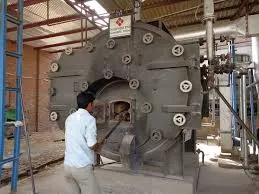
Nov . 14, 2024 13:51 Back to list
boiler temp for hot water
Understanding Boiler Temperature for Hot Water Systems
In modern homes, the efficiency and reliability of hot water systems are paramount. The boiler plays a vital role in heating water to the desired temperature that ensures comfort and meets the needs of daily life, from bathing to washing dishes. However, understanding the ideal boiler temperature for hot water is essential for both performance and safety.
What is Boiler Temperature?
Boiler temperature refers to the heat at which a boiler operates to produce hot water. This temperature is measured in degrees Fahrenheit (°F) or Celsius (°C). In residential systems, this temperature is crucial, as it directly influences the quality of hot water supplied to various fixtures.
Recommended Boiler Temperature Settings
The recommended temperature setting for domestic hot water systems typically ranges from 120°F to 140°F (49°C to 60°C). This range is considered optimal for several reasons
1. Comfort Water temperatures in this range provide sufficient heat for bathing and cleaning while preventing the risk of scalding. Water that is too hot can cause burns, especially in children and the elderly.
2. Energy Efficiency Operating at lower temperatures can improve energy efficiency. Setting the boiler too high results in higher energy consumption and increased utility bills. Lowering the temperature to the recommended levels can save money while still providing adequate hot water.
3. Preventing Bacterial Growth Water temperatures below 120°F (49°C) can lead to the growth of harmful bacteria, such as Legionella, which can thrive in warm water environments. Keeping the temperature above this threshold can help mitigate these risks.
4. System Longevity Higher temperatures can put additional stress on the boiler and plumbing systems, leading to increased wear and potential failures over time. Maintaining a balanced temperature can enhance the lifespan of the heating system.
Factors Influencing Boiler Temperature Settings
boiler temp for hot water

Several factors can influence the ideal boiler temperature setting for a household
- Household Size Larger households may require higher temperatures to ensure that hot water is available at multiple outlets simultaneously, while smaller households can operate efficiently at lower settings.
- Usage Patterns If hot water usage is concentrated during specific times of the day, a higher temperature may be necessary to meet peak demand, while off-peak periods may allow for lower settings.
- Local Climate In colder climates, where the incoming water temperature is lower, slightly higher settings may be necessary to ensure that the water is heated to the desired temperature quickly.
Monitoring and Adjusting Boiler Temperature
Regular monitoring and seasonal adjustments to the boiler temperature can help optimize performance. Homeowners should look for temperature controls, typically located on the boiler or in the settings of a digital thermostat. It is advisable to check the temperature periodically, especially if the household has experienced changes in size or water usage.
Additionally, installing a mixing valve can help regulate the temperature of hot water exiting the boiler. This device blends cold water with hot water to lower the output temperature at fixtures, providing an extra layer of safety and comfort.
Safety Concerns
While maintaining the correct boiler temperature is essential for comfort and efficiency, safety is a significant concern. Homeowners should regularly inspect their systems for signs of malfunction, such as unusual noises, leaking, or failures to maintain the set temperature. It is also important to flush the boiler periodically to prevent sediment buildup, which can impact efficiency and lead to overheating.
Conclusion
Understanding the optimal boiler temperature for hot water systems is crucial for maintaining comfort, safety, and efficiency in any household. By keeping the temperature between 120°F and 140°F, homeowners can enjoy the benefits of a well-functioning hot water system while minimizing risks and costs. By adjusting settings based on specific household needs and monitoring performance regularly, residents can ensure that their hot water systems provide reliable service for years to come.
-
High-Efficiency Commercial Oil Fired Steam Boiler for Industry
NewsJul.30,2025
-
High-Efficiency Biomass Fired Thermal Oil Boiler Solutions
NewsJul.30,2025
-
High Efficiency Gas Fired Thermal Oil Boiler for Industrial Heating
NewsJul.29,2025
-
High-Efficiency Gas Fired Hot Water Boiler for Sale – Reliable & Affordable
NewsJul.29,2025
-
High Efficiency Biomass Fired Hot Water Boiler for Industrial and Commercial Use
NewsJul.29,2025
-
High-Efficiency Biomass Fired Hot Water Boiler for Industrial Use
NewsJul.28,2025
Related PRODUCTS






















